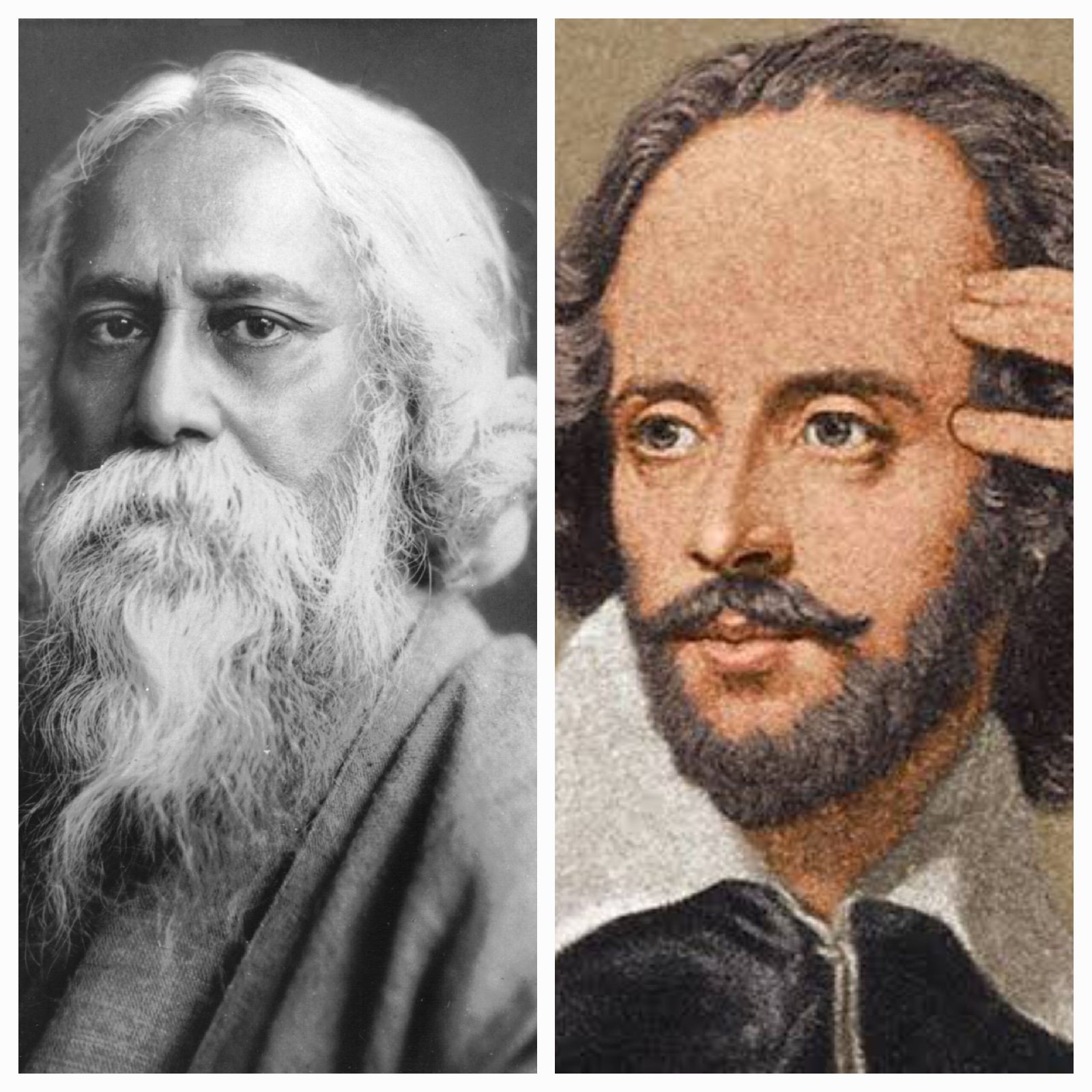Tagore’s Spiritual Lyricism and Shakespeare’s Humanist Exploration
The poetry of Rabindranath Tagore and the writings of William Shakespeare, though separated by centuries and continents, each offer a profound exploration of the human condition, emotions, and philosophy of life. They delve into the complexities of love, the nuances of human nature, and the eternal questions that have perplexed humanity through the ages.
Rabindranath Tagore, a Bengali polymath and a luminary in the realm of Indian literature, was the first non-European to win the Nobel Prize in Literature in 1913. His poetry often reflects a deep spiritual quest and a yearning for a harmonious unity with the cosmos. Tagore’s poetic expressions are grounded in a philosophy that sees the divine in every aspect of the natural world.
One of Tagore’s most celebrated works, "Gitanjali," is a testament to his profound spiritual outlook. His poems here express an intimate relationship with the divine, not in a distant, theological sense but in an immediate, heartfelt manner. In his verse, Tagore often speaks of the soul's journey, its longing for freedom, and the pursuit of a higher truth beyond the material realm.
William Shakespeare, often regarded as the greatest writer in the English language, approached life through a more humanist lens. His plays and sonnets delve into the depth of human emotions, the complexities of societal norms, and the intricate web of interpersonal relationships. In works like "Hamlet," "Macbeth," and "King Lear," Shakespeare explored themes of power, ambition, madness, and the human propensity for both greatness and folly.
Shakespeare’s sonnets, in particular, reveal his deep musings on love, time, beauty, and mortality. In these short poems, he grapples with the transient nature of beauty and the unrelenting march of time, while also celebrating the immortalizing power of poetry.
Both Tagore and Shakespeare were masterful in their portrayal of emotions. Tagore’s poetry often captures the subtle nuances of joy, sorrow, love, and longing, painting these feelings with a divine brush. His words not only express emotions but also evoke them powerfully in the reader.
Shakespeare, on the other hand, dissected the gamut of human emotions through his characters. Be it Hamlet’s existential angst, Othello’s passionate jealousy, or the star-crossed love of Romeo and Juliet, Shakespeare’s writings bring to life the complexities of human feelings.
Tagore saw nature as a manifestation of the divine. His poems frequently celebrate the beauty of the natural world and its profound connection with the human spirit. For Tagore, the rhythms of nature were synonymous with the rhythms of the soul.
Shakespeare, too, often used nature as a backdrop for his plays, though in a different context. For him, nature could reflect the inner turmoil or harmony of his characters. The storms in "King Lear" or the enchanted forest in "A Midsummer Night’s Dream" are not just settings but active elements that parallel the human drama.
Both writers had a compelling way of exploring life and death. Tagore’s perspective was deeply influenced by Hindu and Buddhist philosophies. He saw death not as an end but as a continuation of the journey of the soul. His poems often exude a serene acceptance of death as part of the natural cycle of existence.
Shakespeare, meanwhile, explored death through the lens of human experience. His famous soliloquy in "Hamlet," “To be, or not to be,” poignantly questions the nature of existence and the allure of the afterlife. His writings often wrestle with the fear, uncertainty, and inevitability of death.
The poetry of Rabindranath Tagore and the writings of William Shakespeare are like vast oceans of human experience and philosophical thought. Tagore’s spiritual lyricism and Shakespeare’s humanist exploration offer us timeless wisdom and insight into the myriad expressions of life. Their works remind us of the universal struggles, joys, and questions that connect us all, transcending time and culture. In their profound reflections on love, nature, life, and death, they continue to inspire, enlighten, and move hearts across the world.


